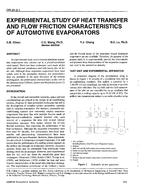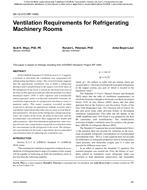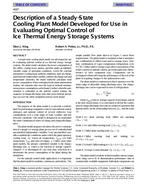Click here to purchase
In order to combat climate change, many countries have been focusing their efforts on how to accelerate the transition towards a clean energy future, expanding access to energy across the world whilst significantly reducing the global carbon footprint. In the UK, as heating and cooling account for nearly half of the energy consumption and a third of carbon emissions, district heating and cooling networks represent a key technology for facilitating a smooth transition from current fossil fuel based energy to future low-carbon energy sources. A key contributor to these low carbon energy sources has been identified as the use of waste heat sources in urban environments, which can help to tackle both climate change and fuel poverty within cities. Despite their known advantages and wide application in many countries, heat networks currently supply only a small fraction of demand (~2% of heating needs) in the UK. This paper reviews how a new generation of district heating networks utilising waste heat can deliver massive carbon savings and are key to meeting future targets. In order to guarantee an efficient operation of the heat network, the installation of integrated control and monitoring systems is essential, as they allow measuring and adjusting key parameters, such as temperatures, pressures and flow rates, assuring that the system achieves optimum performance and stays within safe operating limits. This paper focuses on understanding how the performance of waste heat based district networks can be assessed by exploring best practices identified in the literature relating to control and monitoring of heat networks. Based on the review, the paper also provides recommendations for the best approach for monitoring the performance of a recently developed waste heat recovery system in Islington, London, involving the capture of waste heat from the London Underground, which is then upgraded and used to supply a local district heating network.
Citation: 2020 Winter Conference, Orlando, FL Conference Papers
Product Details
- Published:
- 2020
- Number of Pages:
- 9
- Units of Measure:
- Dual
- File Size:
- 1 file , 920 KB
- Product Code(s):
- D-OR-20-C021


